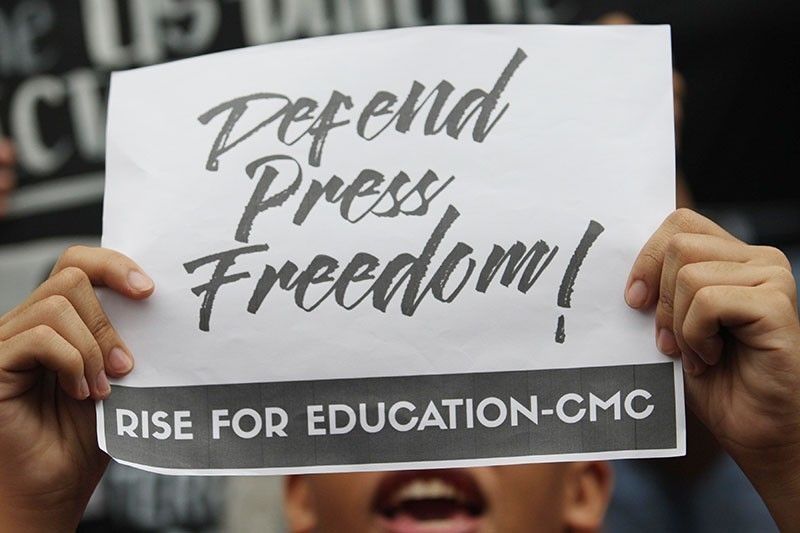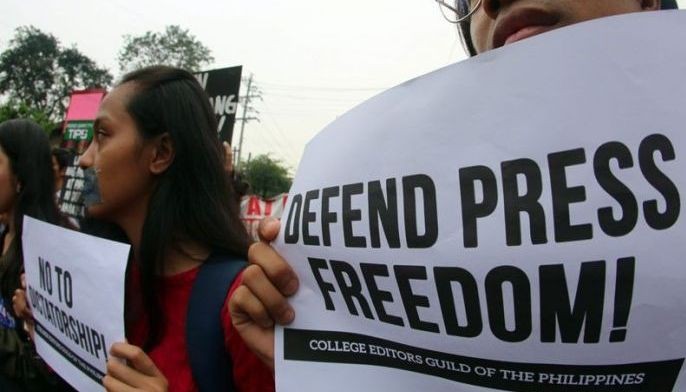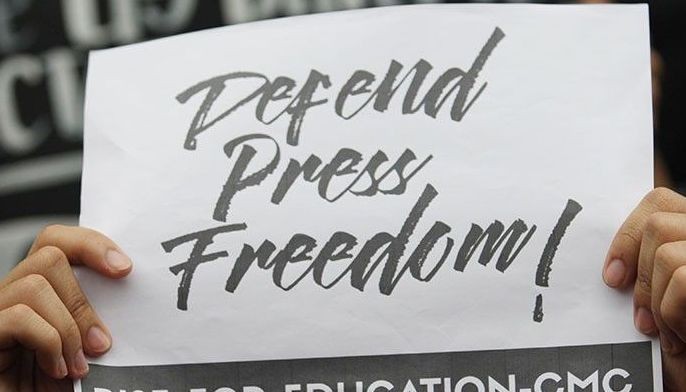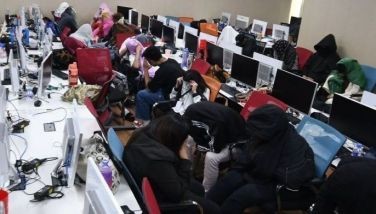Filipino journalists critical of gov't continue to face harassment — US State Dept

MANILA, Philippines — Journalists in the Philippines who have been critical in their coverage of the government continue to experience harassment and threats of violence, according to the United States Department of State.
In its "Country Reports on Human Rights Practices for 2018," the US agency noted that human rights non-government organizations have been criticizing the Philippine government for its failure to protect journalists.
"Journalists and media personalities reported an increase in online threats, including of violence and harassment, in response to articles and comments critical of the government," the report read.
The US report cited a 2017 Freedom House report which showed that the Duterte administration hired a so-called keyboard army to deliver online attacks against critics, especially journalists.
Facebook's selection of third-party factcheckers for the Philippines was also met with criticism by the government itself.
"In April, after Facebook selected Rappler and Vera Files as third-party fact checkers for the country, the Presidential Communications Operations Office publicly criticized the selection, calling the outlets 'partisan' for not supporting the president," the report said.
The report also took note of the "chilling effect" of President Rodrigo Duterte's tendency to single out journalists asking tough questions.
"In the year to July, four government offices restricted journalist access to events and press briefings," the US Department of State said.
Foreign media outlets covering the Philippine press briefings were initially barred during the Association of Southeast Asian Nations Summit in Singapore in November. They were later on allowed access but were still not allowed to ask questions.
The US Department of State also reported Duterte's threat to block the renewal of television network ABS-CBN as its contract expires in 2020.
"President Duterte repeatedly criticized ABS-CBN, the nation’s most influential network, for the station’s failure to air his political advertisements during the 2016 election campaign," the report read.
The president later on backtracked on his threat and said he would not intervene on this matter.
In July last year, three journalists and an intern covering a labor strike in Bulacan were attacked, arrested and accused of possessing illegal drugs and firearms, as reported by the Center for Media Freedom and Responsibility.
They were released in August but police continue to accuse them of spreading alarm and scandal, as well as constituting an illegal assembly.
"The CMFR reported the deaths of seven journalists or media workers through July, but has not yet determined whether the killings were related to their work," the US Department of State said.
The US agency also reported the case of online news site Rappler, whose license had been revoked by the Securities and Exchange Commission early last year.
Aside from the revocation of its license, the government filed tax charges against Rappler and its CEO Maria Ressa.
"The Department of Justice indicted Rappler Holdings, its president, Maria Ressa, and Rappler accountant Noel Baladiang for tax evasion in November, allegations Rappler Holdings’ legal counsel denies," it said.
While the US agency noted concerns on press freedom in the Philippines, extrajudicial killings remain the chief human rights concern in the country, which rose when the Duterte administration launched its war on drugs in 2016.
The US Department of State is equivalent to the Philippines' Department of Foreign Affairs.
US Secretary of State Michael Pompeo said his agency's annual country reports on human rights is part of the Trump administration's policy of engaging with other governments "regardless of their record, if doing so will further US interests."
- Latest
- Trending






























